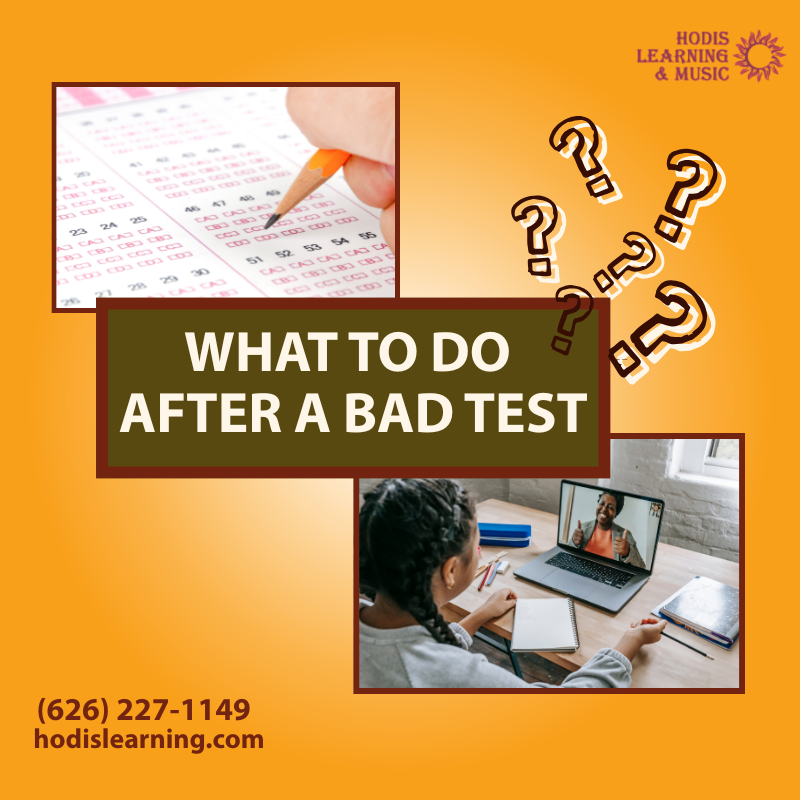What to Do After a Bad Test
We all know the feeling when you open a test or log into the grade book… only to see a score that makes your stomach drop. Whether it was a pop quiz that caught you off guard or a big exam you stayed up all night studying for, getting a poor grade can feel discouraging. But one bad test isn’t the end of the world.
In fact, a low test score can be a valuable learning experience and a turning point in your academic journey. Here’s what to do next:
1. Take a Deep Breath
First things first: don’t panic. One low grade does not mean you’re failing the class or that you’re “bad” at the subject. Even the most successful students have off days. What matters most is what you do next.
Give yourself a moment to feel disappointed if you need to, but don’t let that moment turn into self-doubt.
2. Review the Test Carefully
Once you’ve had a chance to process, go through your test with a clear head. You might need to ask your teacher to see your exam. As you’re reviewing it, keep these things in mind:
- What kinds of mistakes did you make? Were they due to lack of preparation, misunderstanding the material, or test anxiety?
- Were there questions you almost got right but made small errors on?
- Are there patterns in the types of questions you missed (e.g., multiple choice, short answer, word problems)?
Understanding where things went wrong is the first step in doing better next time.
3. Meet with Your Teacher
Don’t be afraid to ask for help. Teachers appreciate when students take initiative:
- Schedule a time to go over your test together.
- Ask for clarification on the questions you missed.
- Find out if there are opportunities for partial credit, test corrections, or extra credit.
Meeting with your teacher shows that you care about your learning and can give you insights into how future tests might be structured.
4. Book a Tutor for Support
If you struggled with the material, a tutor can make a big difference. One-on-one support can help you:
- Strengthen your understanding of difficult concepts.
- Learn new study strategies.
- Build confidence before your next exam.
At Hodis Learning & Music, our expert tutors work with students to turn challenges into strengths.
5. Look Ahead: Evaluate What’s Coming Up
Don’t let one test set the tone for the rest of the term. Take action now to get back on track:
- Check your syllabus and grade breakdown to see how much the test counts.
- List your upcoming assignments, quizzes, and exams.
- Set small goals for each one to rebuild your grade and momentum.
Tip: If your class allows retakes or has cumulative exams, doing well on future assessments can balance things out significantly.
6. Make a Study Plan
Now that you know what’s coming, create a realistic and consistent study plan:
- Break study sessions into manageable chunks.
- Use active study techniques like self-testing or doing practice problems.
- Review past mistakes regularly to avoid repeating them.
Remember, consistency beats cramming every time. A tutor is not only great for reviewing and teaching material, but also keeping you accountable. Regular tutoring sessions can be a time for you to study and prepare.
Need help getting back on track?
Academic struggles are a normal part of learning. If you’re feeling overwhelmed, reach out. HLM offers personalized tutoring to help students regain confidence and reach their goals. Learn more about our tutoring subjects here, or contact us today to learn more.
Call us at (626) 227-1149 or email today to get started!



